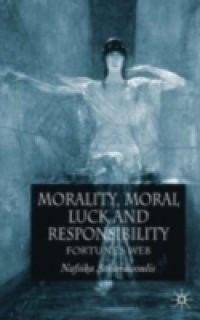Is is possible to make sense of moral praise and blame when a person's life is a tangled web of factors outside of his control? Cases of moral luck bring to the forefront the perplexing idea that we can be held responsible for what is, essentially, a matter of chance. This book offers a systematic and in-depth account of two major normative theories and their responses to the possibility of moral luck. Aristotle attempts to recognize the vulnerability of the good life and reconcile morality with luck, whereas the Kantian ambition is to make morality immune to luck while maintaining a plausible understanding of human nature. Using the questions raised by the problem of moral luck, this book critically assesses the most recent developments by virtue ethicists and neo-Kantians, and examines how these different theories understand concepts such as 'character' and 'virtue'.

